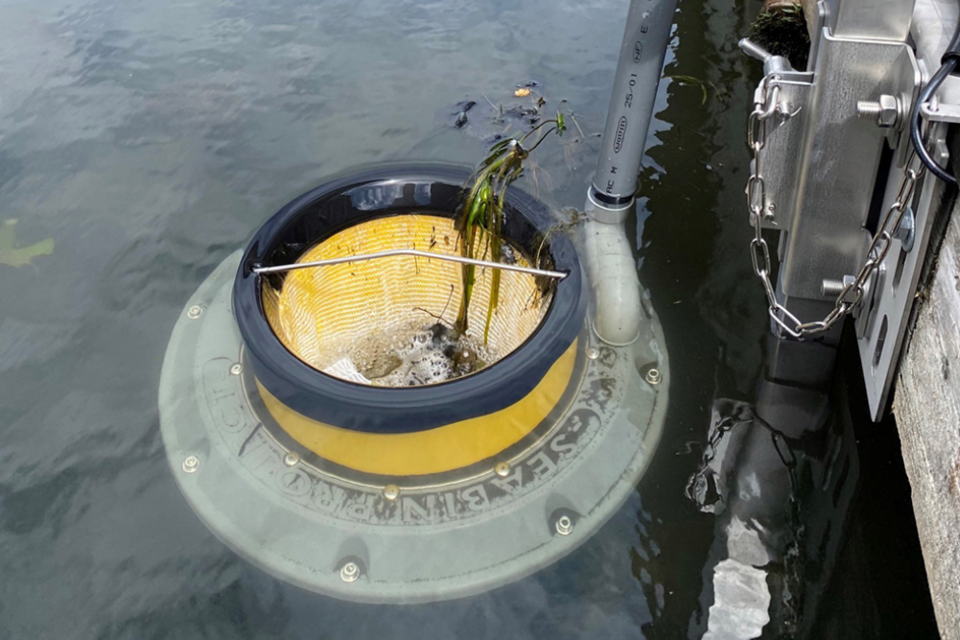Lefroy Harbour Resorts in Innisfil was recognized at this year's 39th annual Conservation Awards, hosted by the Lake Simcoe Region Conservation Authority (LSRCA), for its efforts to keep the lake clean and pristine.
Harbour operators were presented with a 2021 Healthy Water Award for a project that improves, preserves and protects water quality in Lake Simcoe and its watershed.
The online awards highlighted the actions of community partners across the watershed.
“Over the years, Lefroy Harbour Resort has won numerous awards,” says marina manager Linda Ellery. “That lake out there is basically our livelihood. It’s for future generations of boaters.”
Like all Ontario marinas, Lefroy Harbour is part of the Clean Marine Program, which asks marinas to be stewards of their lakes.
Clean Marine has multiple levels of engagement and commitment. Instead of awarding stars like other programs, the program awards “green anchors” at the bronze, silver, gold and platinum levels.
In 2015, Lefroy Harbour became the first Ontario marina to earn platinum, which is the highest rating possible.
Every phase of operations at the Innisfil-based business has an environmental component, Ellery says, from the conservation of energy through efficient lighting, the use of low-flush toilets in the washrooms, and landscape design that minimizes runoff from the parking lots, to support for the Lake Simcoe Conservation Foundation and the LSRCA’s research vessels, which operate out of Lefroy Harbour.
Environmental awareness permeates “every aspect of what we do here at the facility and we’ve been recognized for it,” Ellery says.
The Healthy Water Award recognizes the introduction of Seabins to clean plastics out of the lake.
In 2020, Great Lakes Plastics Clean-Up Foundation partnered with Boating Ontario and the University of Ontario to offer the Seabin program and make the trash skimmers available to marina operators.
The pump-operated skimmers suck in trash, weeds and “whatever else is floating around out there,” capturing the materials in a mesh bin that must be emptied at least once a day.
Lefroy Harbour had purchased a Seabin before the program began, but added a second skimmer at its Kon Tiki marine facility and signed on to collect and sort the gathered materials, sending recovered plastics to the University of Toronto for analysis.
“It fit very well with what we call our green initiatives,” says Ellery. “Basically picking up and cleaning up the plastics that contaminate the lake.”
But it was an education and a surprise. At first, staff were disappointed that the skimmers seemed to be filled almost entirely with water weeds and not the expected floating debris. It was only when the material was dried and examined that they realized the weeds were trapping “microplastics” and pulling them from the water stream.
“It’s the microplastics that this is getting. The weeds are playing the biggest part in pulling that out of the water” and keeping plastics from entering the food chain," Ellery says.
The Seabins are in the water for six months of the year, from May to October. Lefroy Harbour has its summer students carry out much of the work — emptying the bins, drying the collected materials, then removing the plastics, which are stored in a cooler to be sent to the U of T once a month.
Not only are students and staff involved, customers at the marina have also become interested in the project.
“It’s all really great stuff,” says Ellery. “The value of being part of this program is awareness to the problem."
The biggest challenges were where to deploy the Seabins, determined largely through trial and error, and the time commitment. It takes time to empty and sort through the bins and to maintain the pumps.
But as everyone becomes more familiar with the technology and better trained, Ellery says the burden has lessened.
“Each year, we’re getting a little more knowledgeable,” she says. “I think it’s just going to be part of our day-to-day routine.”
The amount of material trapped in a Seabin in a single day may not seem like a lot, but it is addressing the issue of microplastic contamination “one bucket at a time."
"That’s got to have a huge impact over the generations to come,” says Ellery, expressing the hope that not only every marina but also cottagers will consider installing Seabin technology.



